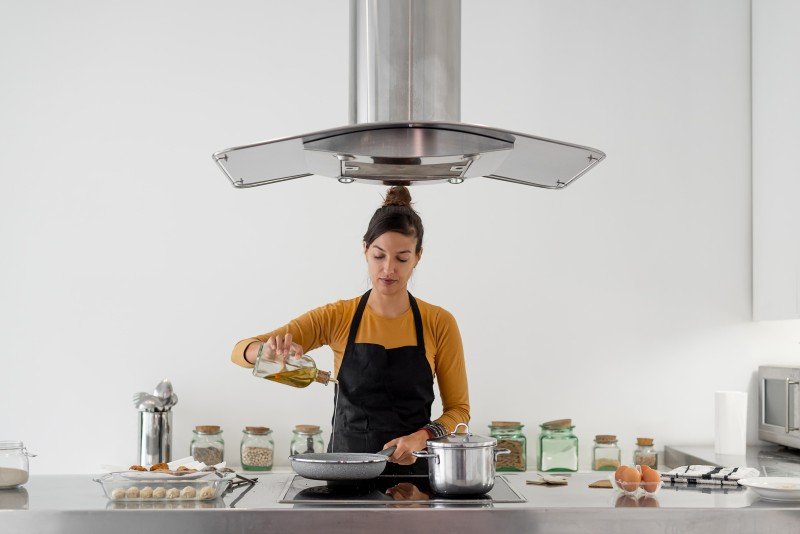20 Things You Need To Be Educated About Sales Ovens
The Comprehensive Guide to Sales Ovens: Understanding Their Importance, Types, and Best Practices
Sales ovens, a category of business cooking equipment, are key gamers in the cooking and foodservice market. These home appliances, designed to prepare food in big quantities effectively, are vital in restaurants, catering services, and other food facilities. This post looks into the significance of sales ovens, their types, and best practices for selecting and utilizing them effectively.
What Are Sales Ovens?
Sales ovens, broadly defined, are cooking devices utilized mostly in business kitchen areas to cook, bake, or heat numerous food items at scale. Their design permits them to manage greater volume cooking compared to standard property ovens. Provided Click Link of food service, sales ovens frequently incorporate advanced technologies that promote speed, efficiency, and even cooking.
Value of Sales Ovens in the Food Industry
Sales ovens play a critical role in food production for many factors:
- Efficiency: Sales ovens can cook food quicker and equally than traditional ovens, allowing chefs to prepare meals in less time.
- Consistency: With precise temperature level controls, sales ovens make sure that the food is prepared uniformly whenever, keeping quality throughout countless servings.
- Flexibility: Many sales ovens can handle different cooking techniques including baking, roasting, broiling, and even steaming, making them ideal for diverse menus.
- Energy Savings: Modern sales ovens are frequently developed to be energy-efficient, reducing functional costs for companies.
Kinds Of Sales Ovens
The marketplace provides a range of sales ovens, each matched for particular cooking requirements and types of food. Here are the most common types:
Type of Oven
Description
Best For
Convection Ovens
Employ a fan to flow hot air, ensuring even cooking.
Baking and roasting products.
Combi-Ovens
A combination of convection and steam cooking, offering flexibility in cooking techniques.
Varied menus needing steaming and baking.
Conveyor Ovens
Use a moving belt to continually prepare food, perfect for high-volume operations.
Junk food and pizza.
Deck Ovens
Function different compartments (decks) that can be individually managed, using high performance.
Craftsmen bread and pastries.
Rotisserie Ovens
Designed to gradually roast meat on a spit, supplying tender and juicy outcomes.
Roasted meats.
Selecting the Right Sales Oven
Choosing the appropriate sales oven for a specific organization requires factor to consider of a number of elements:
- Volume Needs: Assess the volume of food that requires to be prepared. Greater volume suggests choosing conveyor or combi-ovens.
- Menu Diversity: Understanding what type of meals will be prepared can direct the choice process. For example, a bakeshop might require a deck oven, while a restaurant might benefit from a convection oven.
- Space Availability: Measure kitchen space to make sure the ovens fit effectively and have needed ventilation.
- Spending plan: Commercial ovens can vary considerably in rate, so establish a budget plan that thinks about long-lasting operational cost savings.
- Energy Efficiency: Opt for ovens that have energy scores to keep utility costs workable.
Best Practices for Using Sales Ovens
Effectively operating a sales oven includes more than easy use. Here are some best practices to bear in mind:
Regular Maintenance: Schedule regular upkeep to clean and check the functionality of the oven. This makes sure durability and effectiveness.
Pre-heating: Always pre-heat the oven to the wanted temperature before placing food inside for constant cooking outcomes.
Use Thermometers: For precision, use an oven thermometer to guarantee that temperature levels stay constant, especially for baking.
Follow Cooking Times: Adhere to suggested cooking times based upon the type of food being prepared. Adjustments might be needed for various ovens.
Avoid Overcrowding: Ensure enough space around food products in the oven to enable appropriate air circulation.
The Future of Sales Ovens
As innovation advances, so do the capabilities of sales ovens. Developments such as wise technology, energy-efficient styles, and enhanced security functions are ending up being more popular. These advancements promise to enhance cooking performance while likewise fulfilling sustainability objectives.
Frequently Asked Questions about Sales Ovens
Q1: How do I clean my sales oven?
A: Regular cleansing includes eliminating any food particles, wiping down surface areas with non-corrosive cleaners, and following specific cleansing recommendations from the maker.
Q2: What's the life-span of an industrial oven?
A: Typically, a properly maintained industrial oven can last anywhere from 10 to 20 years, depending on usage and maintenance.
Q3: Can sales ovens be utilized for baking?
A: Yes, numerous kinds of sales ovens, particularly convection and deck ovens, are specifically created for baking a variety of products.
Q4: Are there energy-efficient options for sales ovens?
A: Yes, several manufacturers use energy-efficient models that decrease energy usage without sacrificing performance.
Q5: How often should I conduct maintenance on my sales oven?
A: It's recommended to conduct routine upkeep checks each month or quarter, depending on usage levels. Furthermore, an extensive inspection ought to take place at least annually.
Sales ovens are indispensable in the contemporary cooking landscape. Their capability to prepare big amounts of food efficiently makes them necessary for restaurants, catering services, and other food establishments. By comprehending the different types, choosing the best oven, and sticking to best practices, food service businesses can optimize their cooking processes, enhance their offerings, and eventually delight their clients with outstanding culinary productions.
